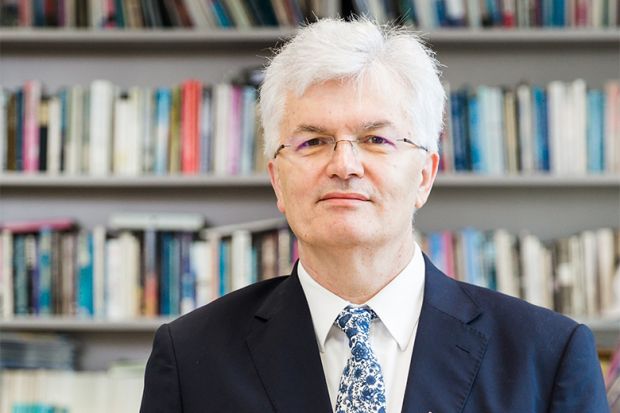Former University of Melbourne vice-chancellor Glyn Davis has ridiculed claims of a free speech crisis on Australian campuses, calling the claims a “confected calamity” designed to stop universities being “a voice for progressive causes”.
In a speech at the Australian National University, where he is a distinguished professor with the Crawford School of Public Policy, Professor Davis likened the claims to “special pleading” by students contesting justifiably low grades.
“I’ve read very carefully everything I can find over the last few months in support of this claim of a free speech crisis, and I’m frankly shocked to see how thin it is. It turns out to be a small number of anecdotes endlessly retold, warnings about trends in the US, implausible readings of university policies, and unsourced claims that students and staff feel oppressed,” Professor Davis said.
Professor Davis said that critics of Australian universities’ upholding of free speech immediately cited American examples – such as trigger warnings, safe spaces and clashes at the University of California, Berkeley over an appearance by Milo Yiannopoulous – because such instances were limited in Australia.
He said that an audit by conservative thinktank the Institute of Public Affairs had identified just five confrontations with speakers at Australian campuses, and one withdrawn invitation, in a survey spanning at least three years. “These seem remarkably small numbers for a crisis,” he said.
Claims of threats to academic freedom relied on a single instance at James Cook University, he said, while the IPA’s “hostility index” – a measure of censorship on campus – was based on ingenuous readings of university policies that amounted to “a schoolboy debating triumph”.
Critics also cited universities’ rejections of money from conservative-leaning donors – such as the University of Western Australia’s refusal to host a consensus centre associated with climate contrarian Bjørn Lomborg, and ANU’s termination of negotiations with the Ramsay Centre for Western Civilisation – as evidence of left-wing domination.
“Freedom of association – the right to choose one’s company without compulsion – is also a fundamental right,” Professor Davis said.
“I was a vice-chancellor for 18 years. I can only recall one no-platforming incident. The pace and intensity of controversies appear unchanged. No example offered by the critics suggests a retreat from scholarly standards.”
Professor Davis suggested that the crisis had been concocted to garner support for US-style interventions to stop professors offering personal opinions – a surprising trend from “right-leaning” groups that had traditionally opposed regulatory excess.
“Concerns about relativist professors, political correctness and the perceived decline of western civilisation are very much US preoccupations. The translation to Australia is less convincing,” he said.
“Here politics is not so polarised. Australia has no tradition of violent campus protests. No statues have been pulled down. There are few complaints about microaggression. Recent student campaigns focus on the traditional and long-standing concerns about sexual harassment, about environmental issues, about student fees.”
He pointed to “real and definite” threats to academic freedom in Hungary and Turkey, tightening party control in China and arrests of scholars in the Middle East. Closer to home, threats came from funding policies that made universities dependent on international students and donors.
Professor Davis also cited security laws “that circumscribe areas of acceptable research”, and decisions to “override safeguards designed to make research funding decisions transparent and non-political”.
He added: “These are the challenges to institutional autonomy and campus freedoms we should discuss, not some confected calamity.”
Register to continue
Why register?
- Registration is free and only takes a moment
- Once registered, you can read 3 articles a month
- Sign up for our newsletter
Subscribe
Or subscribe for unlimited access to:
- Unlimited access to news, views, insights & reviews
- Digital editions
- Digital access to THE’s university and college rankings analysis
Already registered or a current subscriber? Login










